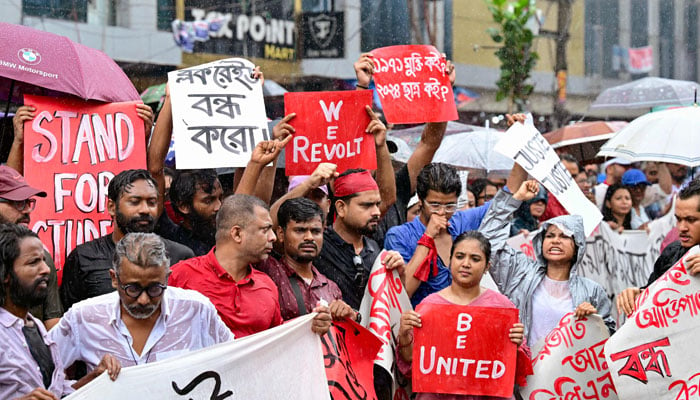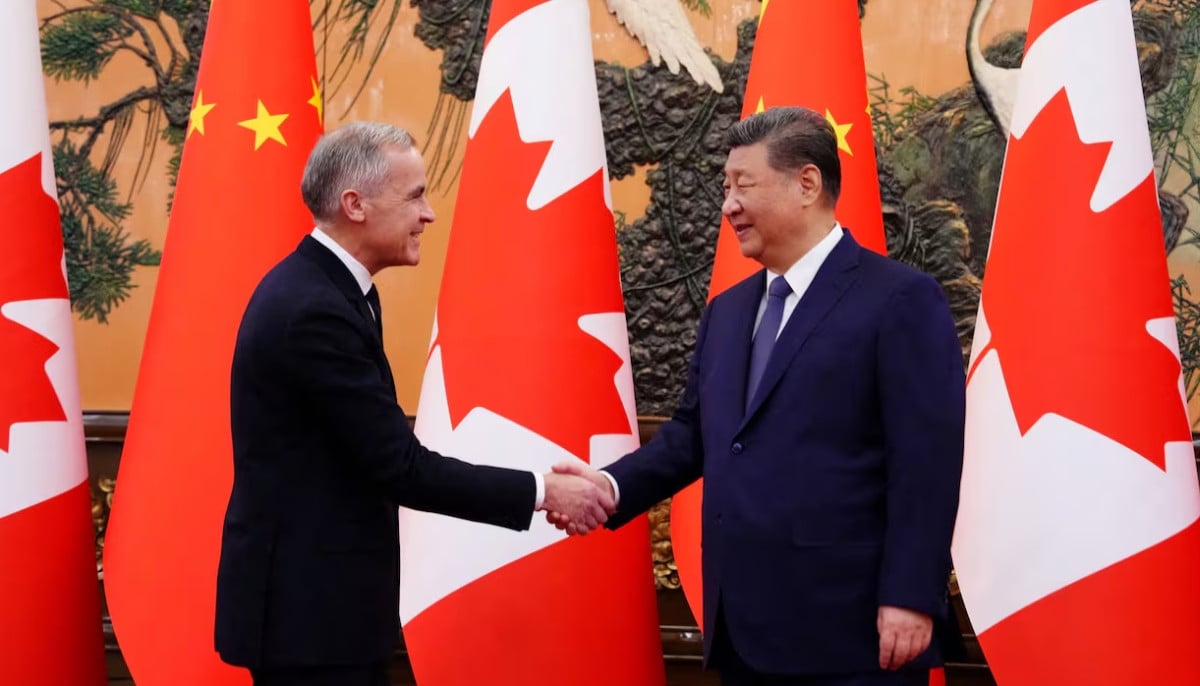Bangladesh bans Jamaat-e-Islami, associate organisations under anti-terror law
Jamaat-e-Islami condemns Hasina-led government's move as "illegal, extrajudicial and unconstitutional"
The government in Bangladesh banned Jamaat-e-Islami, an opposition party, its student wing Islami Chhatra Shibir and other associate organisations under anti-terrorism law, Anadolu Agency reported citing an official order.
The ban will come into effect immediately, according to a gazette notification issued by the home ministry on Thursday.
The government move came as the South Asian nation has been witnessing massive student protests since last month, which have led to the death of at least 150 people.
The move, decried as "unconstitutional and illegal" by the Jamaat-e-Islami, comes after Prime Minister Sheikh Hasina blamed it and the main opposition Bangladesh Nationalist Party (BNP) for violence that forced her to impose curfew.
In a statement issued earlier, the Jamaat had condemned the Awami League-led ruling alliance's decision as "illegal, extrajudicial and unconstitutional".
"Using state machinery, they are playing a blame game against Jamaat and other opposition parties," said Shafiqur Rahman, chief of the party, which, along with the opposition, had denied the government's statement that they stoked violence.
Jamaat was effectively banned from contesting elections by a 2013 court decision that its registration as a political party conflicted with the South Asian nation's secular constitution.
Bangladesh shut down the internet and sent the army to enforce a nationwide curfew as the demonstrations spread after they began in universities and colleges in June.
Thousands were injured as security forces fired rubber bullets, tear gas and lobbed sound grenades to disperse tens of thousands of protesters who flooded into the streets.
The violence was the biggest test Hasina, 76, has faced since winning a fourth straight term in elections in January that were boycotted by BNP and also marred by deadly protests.
She first led her party to victory in elections in 1996, serving one five-year term before regaining power in 2009, never to lose again.
Rights groups and critics say Hasina has become increasingly autocratic during her last 15 years in power, marked by arrests of political opponents and activists, forced disappearances and extrajudicial killings, charges she denies.
The United Nations, global rights groups, the United States and Britain criticised Dhaka's use of force against the demonstrators, asking it to uphold the right to peaceful protest.
Members of the Students Against Discrimination group, who had agreed to call off their agitation after the Supreme Court scrapped most quotas on July 21, said they would march on Wednesday to protest recent deaths, arrests, and intimidation.
Rights groups have condemned authorities for arrests of close to 10,000 people over the past two weeks on charges of involvement in clashes and destroying state property.
"We will also demand a United Nations investigation into the violence," Mohammad Mahin Sarkar, a co-ordinator of the movement for quota reform, said in a statement.
In response, Anisul Huq, the minister for law, justice and parliamentary affairs, said Dhaka had set up a judicial inquiry to investigate thoroughly.
Experts have blamed the unrest on stagnant job growth in the private sector and high rates of youth unemployment that have made government jobs more attractive at a time when inflation is running around 10%.
— With additional input from Reuters
-
Alan Cumming shares plans with 2026 Bafta Film Awards
-
OpenClaw founder Peter Steinberger hired by OpenAI as AI agent race heats up
-
Chinese New Year explained: All you need to know about the Year of the Horse
-
Canadian passport holders can now travel to China visa-free: Here's how
-
Edmonton weather warning: Up to 30 cm of snow possible in parts of Alberta
-
ICE agents 'fake car trouble' to arrest Minnesota man, family says
-
China confirms visa-free travel for UK, Canada nationals
-
Bad Bunny's star power explodes tourism searches for his hometown












